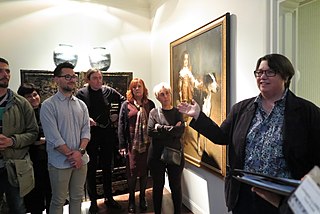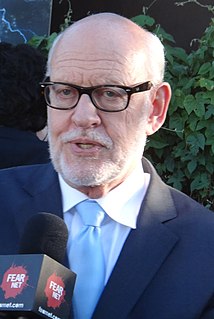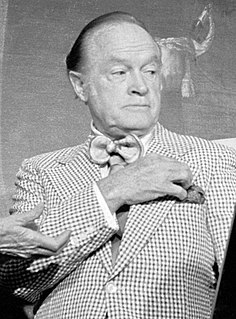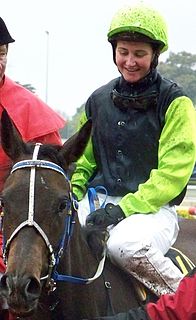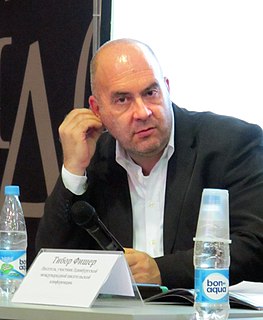A Quote by Nish Kumar
When we were growing up we were all asked to accept ourselves as British citizens, and I still hold on to this idea that multicultural Britain is possible.
Related Quotes
I have no idea what a British sensibility or a British sense of humor is. I have no concept of what that is. I have no concept of what American sensibility is. I was born in Great Britain, but I was only there for six months, and we moved to Belgium, where I grew up. I love Britain, I lived there for nine years doing shows and things, but I don't know what a British sensibility is. I'd like to have someone tell me what an American sensibility is.
In virtually every Continental state at this time, aristocracies had to live with the risk that their property might be pillaged or confiscated. Only in Great Britain did it prove possible to float the idea that aristocratic property was in some magical and strictly intangible way the people's property also. The fact that hundreds of thousands of men and women today are willing to accept that privately owned country houses and their contents are part of Britain's national heritage is one more proof of how successfully the British elite reconstructed its cultural image in an age of revolution.
From the 1920s into the 1940s, Britain's standard of living was supported by oil from Iran. British cars, trucks, and buses ran on cheap Iranian oil. Factories throughout Britain were fueled by oil from Iran. The Royal Navy, which projected British power all over the world, powered its ships with Iranian oil.
It's strange, somebody asked for my autograph the other day. Because I finished school and I'm not really doing anything at the moment, I was just kind of aimlessly wandering around London and these two guys who were about 30 came up and asked for my autograph. I was really quite proud at the time, and they wanted to take photos and stuff. And then they were sort of wandering around and I was kind of wandering around and I bumped into them about three times, and every single time their respect for me kept growing and growing and growing.

